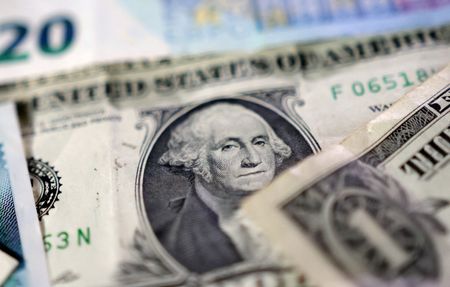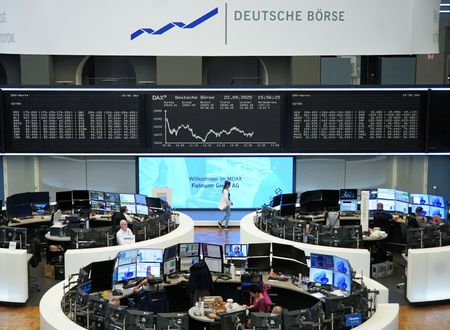By Erwin Seba
HOUSTON (Reuters) -Oil prices rose on Friday as Ukraine’s drone attacks on Russia’s energy infrastructure cut the country’s fuel exports.
Brent futures gained 51 cents, or 0.73% to $69.93 a barrel by 12:46 p.m. CDT (1746 GMT). U.S. West Texas Intermediate (WTI) crude rose by 71 cents, or 1.09% to $65.69 a barrel.
Both benchmarks are set to register their biggest increases since mid-June.
“Markets continued to be focused on the situation between Russia and Ukraine,” said John Kilduff, partner with Again Capital. “These drone attacks by Ukraine are beginning to add up.”
Russia will introduce a partial ban on diesel exports until the end of the year and extend an existing ban on gasoline exports, Deputy Prime Minister Alexander Novak said on Thursday.
The drop in refining capacity has left several Russian regions facing shortages of certain grades of fuel.
In addition to the drone attacks, Andrew Lipow, president of Lipow Oil Associates, said U.S. government action was also supportive.
“President Trump continues to pressure U.S. allies to reduce Russian imports,” Lipow said. “We might see India and Turkey reduce some of their Russian imports.”
NATO’s warning of a response to further violations of member nations’ airspace has ratcheted up tensions from the war in Ukraine and raised prospects of additional sanctions on Russia’s oil industry, said ANZ analyst Daniel Hynes.
On the supply side, crude oil exports are scheduled to resume on Saturday from Iraq’s semi-autonomous Kurdistan region, the state news agency said, citing state marketer SOMO, which will transport the oil via pipeline to Turkey’s Ceyhan port.
“The market will be watching Kurdish production to see what that will add to supply,” Lipow said.
On the demand side, U.S. gross domestic product increased at an upwardly revised 3.8% annualized rate in the past quarter, the Commerce Department’s Bureau of Economic Analysis said in its latest estimate on Thursday.
“If Russia’s supply to China and India is changed they’ll be looking for supply,” Again Capital’s Kilduff said. “U.S. economic data has been OK. And with the Fed easing interest rates that will contribute to demand.”
However, stronger than expected economic data could make the U.S. Federal Reserve more cautious about cutting interest rates after a cut of 25 basis points last week, its first since December.
(Reporting by Erwin Seba in Houston, Enes Tunagur and Sudarshan VaradhanEditing by Louise Heavens and David Gregorio, Kirsten Donovan)









